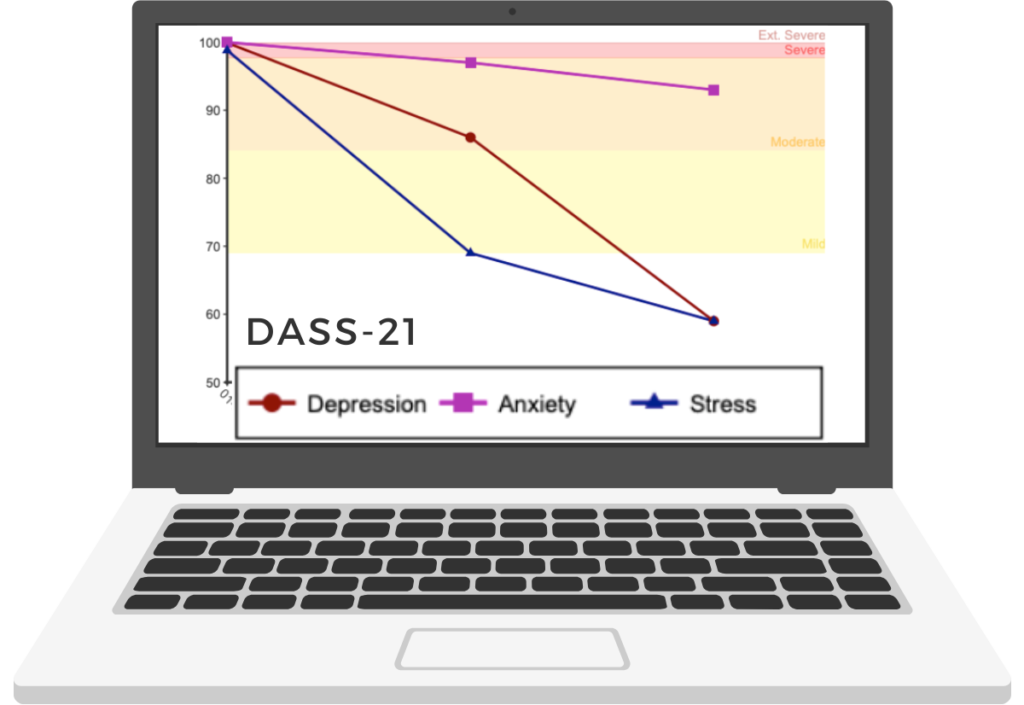
Use NovoPsych within your browser on any device (laptop, tablet, smartphone). Assessments can be emailed instantly from your computer to the client’s smartphone so they can complete the assessment in your office or waiting room on their own device.
Outcomes measures are clearly graphed over time helping the clinician monitor treatment and the client appreciate gains. Routinely measuring clinical outcomes offers significant benefits, including guiding treatment decisions and helping clients recognise their own improvements.
Get access to dozens of multi-choice tests to to measure outcomes, assist with case conceptualisation and assist with diagnosis. All assessments are valid and reliable with multiple published research articles supporting their use.
Schedule regular email assessments for your clients to complete at home to reduce dropout and remotely monitor symptoms. Schedule follow up assessment on discharge to make sure the client is keeping on track.
NovoPsych instantly scores your assessments saving you precious time and gives you useful interpretations. Scores are presented as percentile ranks, comparing your clients scores with normative data.
Gain valuable feedback from clients about their experience of the therapeutic alliance, not only with clients whom are continuing therapy but also for those whom have dropped out. The ultimate in feedback informed practice.
NovoPsych includes assessment for:
- Depression
- Anxiety
- Obsessive compulsive disorder
- Satisfaction with life
- Pain Self-Efficacy
- Eating Disorders
- Stress
- Post Traumatic Stress Disorder
- Autism Spectrum Disorder
- Mindful Awareness
-
Therapeutic Alliance
- Self-Esteem
- Metacognition
- Children's Anxiety
- Children's Depression
-
Social Anxiety
- Body Image Anxiety
- Adult Attachment Style
Graph Symptoms Over Time
Routine Outcome Monitoring
NovoPsych graphs symptoms so you can visually monitor symptoms changing from session to session.
Graph outcomes using the DASS-21 and dozens of other outcome monitoring tools.
Use of outcome measures can guide treatment decisions and help clients recognise their own improvements.
Provide referrers an objective representation of patient distress and provide personalised evidence of progress in treatment.

See NovoPsych Introductory Video
What are Psychologists saying about NovoPsych?










